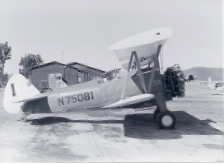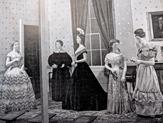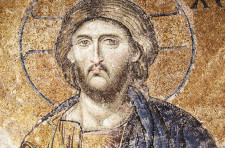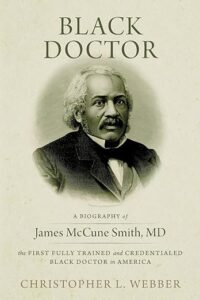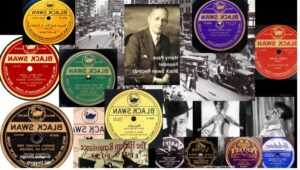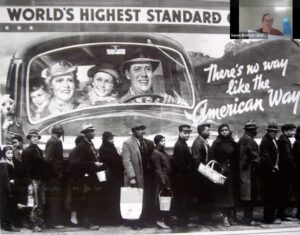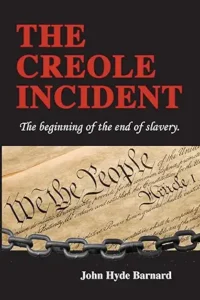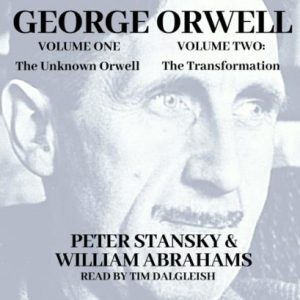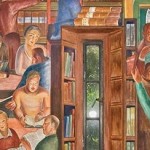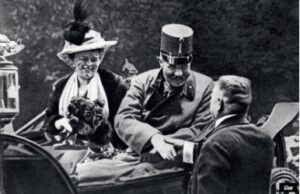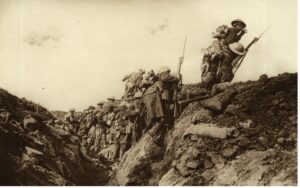…
Blog Archives
Monthly Program November 15, 2025: Dorothy Liebes and the Golden Gate International Exposition
Dorothy Liebes and the Golden Gate International Exposition
…
Monthly Program September 20, 2025: The Making of a Pilgrimage: Fort Ross, 1925 2025
The Making of a Pilgrimage: Fort Ross, 1925 2025
…
Monthly Program August 16 2025: First Ladies and Women’s Rights: From the Jacksonian Era to the Civil War, 1829-1861
First Ladies and Women’s Rights: From the Jacksonian Era to the Civil War, 1829-1861
…
Monthly Program July 19 2025: Secularism, the Sacred, and Technology
…
IHS Board Endorses Statements Responding to Assaults on History and Research
· The American Historical Association statement, which is printed in the spring edition of the IHS newsletter.
…
Monthly Program April 2025: The Y2K Problem and What it Means
The Y2K Problem and What it Means
…
Monthly Program March 2025: Black Doctor: A Biography of James McCune Smith
Saturday, March 16, 10:00 am, Monthly Program
Black Doctor: A Biography of James McCune Smith
…
Monthly Program February 2025: Black Swan Records and the Harlem Renaissance
Sunday, February 16, 2:00 pm, Monthly Program
A Program for Black History Month:
Black Swan Records and the Harlem Renaissance
The Story of the First Black-Owned Record Company, 1921-1923
…
Monthly Program January 2025: Racialized Antisemitism
The 1924 Immigration Act severely restricted immigration from Southern and Eastern Europe in favor of “Old Stock” immigrants from Northern and Western Europe.
…
Monthly Program November 2024: Fire Rituals—Theory and Practice
We have long used fire in rituals: sacred and secular; solemn and silly; from solstice bonfires to the Olympic torch to candles on a birthday cake. We are entering a season of ubiquitous ceremonial flames: the Hannukah menorah,
…
Monthly Program: The Creole Incident: The Beginning of the End of Slavery
Sunday, October 20, 2:00 pm, Monthly Program via Zoom.
Democracy Under Attack. THE CREOLE INCIDENT: The Beginning of the End of Slavery. View on the IHS YouTube channel.
…
Monthly Program: The Early Chinese of Sonoma Valley
Sunday, July 21, 2:00 pm 2024, Monthly Program via Zoom. View on the IHS YouTube channel.
A presentation by Peter Meyerhof
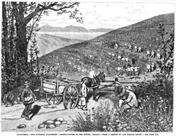 Chinese grape growers in the Sonoma Valley (1880)
Chinese grape growers in the Sonoma Valley (1880)
…
Monthly Program: The Norwich Blood Libel
Sunday, July 21, 2:00 pm 2024, Monthly Program via Zoom.
A presentation by Esther Mordant
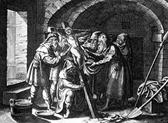 Shortly before Easter, 1144, a year at which Easter and Passover coincided, a 12-year-old boy, William, a tanner’s apprentice,
Shortly before Easter, 1144, a year at which Easter and Passover coincided, a 12-year-old boy, William, a tanner’s apprentice,
…
Monthly Program: Judaism, Christianity, and War
Sunday, June 16, 2:00 pm, 2024 Monthly Program via Zoom. View on the IHS YouTube channel.
A presentation by Dan Kohanski
 At almost any moment in recorded history, someone, somewhere, is at war. While wars are fought for many different reasons,
At almost any moment in recorded history, someone, somewhere, is at war. While wars are fought for many different reasons,
…
Monthly Program: A Torrid Splendor: Can this book be saved?
Sunday, April 21, 2024
A presentation by Cathy Robbins
In her work in progress, A Torrid Splendor: Seeking Calabria, Cathy Robbins tells a story about a society’s fall from grace. Once upon a time Calabria was a jewel in the diadem of Magna Graecia,
…
Monthly Program: Mendocino Refuge: A World Apart and A Part of the World
Sunday, March 17, 2024
View on the IHS YouTube channel.
A presentation by Dot Brovarney
 Dot’s book, Mendocino Refuge: Lake Leonard & Reeves Canyon, is a multifaceted story of the people,
Dot’s book, Mendocino Refuge: Lake Leonard & Reeves Canyon, is a multifaceted story of the people,
…
Monthly Program: Bringing History Alive From the Words of Those Who Were There
Sunday, February 18, 2024
“Bringing History Alive From the Words of Those Who Were There“
A presentation by Judith Robinson
…
Monthly Program: Writing “Letters to Berlin: Writings of a German Jewish Refugee”
Sunday, January 21, 2024 Monthly Program via Zoom.
…
Monthly Program: Writing “Harry Bridges: Labor Radical, Labor Leader”
Sunday, November 19, 2023 Monthly Program via Zoom.
“Writing Harry Bridges: Labor Radical, Labor Leader“
A presentation by Robert Cherny
…
Monthly Program: Round Table on Historians’ Work
Sunday, October 15, 2023, Monthly Program via Zoom.
“Round Table on Historians’ Work”
A Conversation with Rob Robbins and Oliver Pollak
…
Monthly Program: How We Domesticated Fire, and Fire Domesticated Us
Sunday, September 17, 2023, Monthly Program via Zoom. View on the IHS YouTube channel.
“How We Domesticated Fire, and Fire Domesticated Us“
A Presentation by Jim Gasperini
…
Monthly Program: First Ladies and Women’s Rights: Daughters of the Enlightenment
Sunday, August 20, 2023, Monthly Program via Zoom.
“First Ladies and Women’s Rights: Daughters of the Enlightenment“
A Presentation by Elizabeth Thacker-Estrada and Patricia Southard
…
Monthly Program: A Brief History of the End of the World
Sunday, June 18, 2:00 pm, Monthly Program via Zoom. View on the IHS YouTube channel.
“A Brief History of the End of the World”
A Presentation by Dan Kohanski
…
Monthly Program: One Picture — Several Stories: The Petrograd Children’s Colony in Russia and America
Sunday, May 21, 2:00 pm, Monthly Program via Zoom.
“One Picture — Several Stories: The Petrograd Children’s Colony in Russia and America.”
A Presentation by Maria Sakovich
…
Monthly Program: “Designed for Large Explosions” – The Port Chicago explosion and the Manhattan Project
Sunday, March 19, 2:00 pm, Monthly Program via Zoom.
“Designed for Large Explosions” – The Port Chicago explosion and the Manhattan Project
A Presentation by Daisy Brown Herndon
…
Monthly Program: Kissing Cousins: The Artistic Lives of San Francisco’s Albert M. Bender and Anne M. Bremer
Sunday, March 19, 2:00 pm, Monthly Program via Zoom.
Kissing Cousins: The Artistic Lives of San Francisco’s Albert M. Bender and Anne M. Bremer
A Presentation by Ann Harlow
When Anne M.
…
Monthly Program: The Who, What, When, Where, How and Why of Paraplegic Vivian Edward’s Transcontinental Goat Cart Odyssey, 1907-10
Sunday, February 19, 2:00 pm, Monthly Program via Zoom
The Who, What, When, Where, How and Why of Paraplegic Vivian Edward’s Transcontinental Goat Cart Odyssey, 1907-10
A Presentation by Oliver B.
…
Monthly Program: Mindful Surrealism: Practice-Based Research in San Francisco
Sunday, January 15, 2022 2:00 pm, Monthly Program via Zoom.
A Presentation by Nathan Foxton
Surrealism is a cultural and art historical movement that evolved over the 20th century,
…
Monthly Program: The Genocide in California’s Closet
Sunday, December 18, 2022 2:00 pm, Monthly Program via Zoom. View on the IHS YouTube channel.
The Genocide in California’s Closet
A Presentation by Robert Aquinas McNally
 Most Californians are unaware that in the second half of the 19th century their state sponsored and funded a campaign to exterminate its Indigenous peoples — a mass atrocity known under contemporary international law as genocide.
Most Californians are unaware that in the second half of the 19th century their state sponsored and funded a campaign to exterminate its Indigenous peoples — a mass atrocity known under contemporary international law as genocide.
…
Monthly Program: Eternal Flames: Excerpt from a work in progress
Sunday, October 16, 2:00 pm, Monthly Program via Zoom. View a video of this presentation here.
Eternal Flames: Excerpt from a work in progress
A Presentation by Jim Gasperini
…
Monthly Program: How to Create Your Own Legacy Book
Sunday, September 18, 2:00 pm, Monthly Program via Zoom.
 How to Create Your Own Legacy Book
How to Create Your Own Legacy Book
A Presentation by Margaretta Mitchell
Margaretta is both photographer and writer, who always brings research and history into her books.
…
Public Program: Writing and Revising Narrative History
Sunday, August 21, 2:00 pm, Public Program. view a video of this presentation here.
 Writing and Revising Narrative History
Writing and Revising Narrative History
A Presentation by Megan Kate Nelson
…
Monthly Program: The Joy of Life: Impressionists and Post-impressionists in Russia
 Sunday, July 17, 2:00 pm, Monthly Program via Zoom.
Sunday, July 17, 2:00 pm, Monthly Program via Zoom.
The Joy of Life:
Impressionists and Post-impressionists in Russia
A Presentation by Marina Oberatova
Russia has one of the world’s best collections of French Impressionist and Post-Impressionist paintings. It rivals the holdings of French museums—especially when it comes to the masterpieces of Paul Gauguin,
…
Monthly Program: General Vallejo’s Efforts to Establish a Mission in Santa Rosa
 Sunday, June 19, 2:00 pm, via Zoom.
Sunday, June 19, 2:00 pm, via Zoom.
A Presentation by Peter G. Meyerhof
In 1834, all of the 19 missions in Alta California were turned over to civil administrators who were to take over secular control from the mission priests and arrange distribution of assets including the land to the baptized Native Americans who had worked there.
…
Monthly Program: Second Wave Feminism in a Post War Suburban Synagogue
Between 1968 and 1979, women at the Pasadena Jewish Temple and Center wrote and produced five musical comedies. These productions are an example of women forging a presence in an institution that barred them from equal participation in religious ritual and prevented them from fully participating in temple governance.
…
Monthly Program: Why the Jews Won’t Accept Jesus, and Why This Is a Problem for Christians
 A video of this presentation can be viewed on our YouTube Channel.
A video of this presentation can be viewed on our YouTube Channel.
Saturday, April 16, 2022 10:00 am
…
Monthly Program: Matera and the Sassi: From National Shame to International Fame
 Its troglodyte residents ravaged by poverty and disease, its rock-walled churches all but forgotten,
Its troglodyte residents ravaged by poverty and disease, its rock-walled churches all but forgotten,…
Monthly Program: George Daniel de Monfreid: Post-Impressionist Trailblazer & Gauguin’s Best Friend
Sunday, February 22, 2:00 pm
A Talk by Laure Latham
 The French artist George Daniel de Monfreid (1856-1929) broke from mainstream impressionism early on, becoming a leading voice of the post-impressionist movement in his country.
The French artist George Daniel de Monfreid (1856-1929) broke from mainstream impressionism early on, becoming a leading voice of the post-impressionist movement in his country.
…
Monthly Program: Beyond Genealogy -Tips and Techniques for Researching and Presenting Family History Online
 The internet can bring life to a tree of boxes listing who begat whom. Jim will show how – using The Colburn Chronicles,
The internet can bring life to a tree of boxes listing who begat whom. Jim will show how – using The Colburn Chronicles,
…
Monthly Program: The Four Wars That Shaped George Orwell, From the “Great” One to the “Cold” One
Peter Stansky will discuss how Orwell was shaped by his experiences of living through four wars: the First World War while he was growing up; the Spanish Civil War,
…
Monthly Program: Exploring Indigenous California History
 An informal talk for Native American Heritage Month about my recent adventures in developing a group and blog site on “Honoring Indigenous Peoples,” formulating a land acknowledgment, paying Shuumi land tax,
An informal talk for Native American Heritage Month about my recent adventures in developing a group and blog site on “Honoring Indigenous Peoples,” formulating a land acknowledgment, paying Shuumi land tax,
…
Monthly Program: Organized Crime, Big Business, and the Corruption of American Democracy
 Bay Area author Jonathan Marshall offers an original take on an old subject, political corruption, and challenges the myth of a past golden age of American democracy.
Bay Area author Jonathan Marshall offers an original take on an old subject, political corruption, and challenges the myth of a past golden age of American democracy.
…
Monthly Program: Out of the Fog: The Surprising Origin Story of the Cable Cars
Sunday, September 19, 2:00 pm
Taryn Edwards presented
 San Francisco’s historic cable cars have reopened! Beloved by tourists and locals alike, the cable cars are integral to the development, character, and culture of San Francisco. Join Taryn Edwards for a peek into her research about the cable car’s surprising origins and an update on the life of Andrew Smith Hallidie,
San Francisco’s historic cable cars have reopened! Beloved by tourists and locals alike, the cable cars are integral to the development, character, and culture of San Francisco. Join Taryn Edwards for a peek into her research about the cable car’s surprising origins and an update on the life of Andrew Smith Hallidie,
…
Monthly Program: George Templeton Strong, the Civil War Sanitary Commission, and the Women’s Movement
 A Wall Street lawyer’s Civil War project to help preserve the Union inadvertently ended up empowering women and paving the way to health-care reform.
A Wall Street lawyer’s Civil War project to help preserve the Union inadvertently ended up empowering women and paving the way to health-care reform.
…
Monthly Program: Solomon Schocken: Sonoma’s Preeminent Jewish Entrepreneur
Sunday, July 18, 2:00 pm
Peter Meyerhof presented
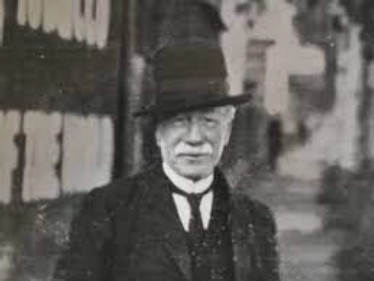 Solomon Schocken (1842-1932) was a Jewish immigrant who rose quickly to considerable significance in Sonoma and beyond, through his own business ventures and as a mentor to several future entrepreneurs.
Solomon Schocken (1842-1932) was a Jewish immigrant who rose quickly to considerable significance in Sonoma and beyond, through his own business ventures and as a mentor to several future entrepreneurs.
…
The Social Crusader: Berkeley Mayor J. Stitt Wilson’s Lifelong Quest for a Just Society
 Thursday July 22 7:00 PM – 8:30 PM PDT
Thursday July 22 7:00 PM – 8:30 PM PDT
Author Stephen E. Barton introduced his new book, J. Stitt Wilson: Socialist, Christian, Mayor of Berkeley. Faced with the dramatic extremes of wealth and poverty that characterized Gilded Age America, Wilson (1868-1942) gave up a promising career in the ministry to advocate for “applied Christianity”—a democratic and socialist economy based on caring and cooperation that would embody Jesus’s message of love.
…
Monthly Program: The Socialite and the Sea Captain – Louise Arner Boyd and Captain Bob Bartlett on the 1941 Arctic Voyage of the Effie M. Morrissey
Sunday, June 20, 2:00 pm
David Hirzel presented
 A talk by David Hirzel on the prickly relationship between the socialite and the sea captain on his famous schooner Effie M. Morrissey. When war threatened U.S. neutrality in 1940,
A talk by David Hirzel on the prickly relationship between the socialite and the sea captain on his famous schooner Effie M. Morrissey. When war threatened U.S. neutrality in 1940,
…
Monthly Program: Richard Hurley, “Campaigns of the California Volunteers”
Sunday, May 16, 2:00 pm, Monthly Program, via Zoom. Richard Hurley presented:
 This multimedia show chronicles the adventures (and misadventures) of the nearly 17,000 young men who volunteered for the Union army during the Civil War. Moved by passionate patriotism,
This multimedia show chronicles the adventures (and misadventures) of the nearly 17,000 young men who volunteered for the Union army during the Civil War. Moved by passionate patriotism,…
Monthly Program: David Goldberg, A Family History
Sunday, April 18, 2:00 pm, Institute member David Goldberg on
A Family History
 a photographic historical essay using the language of contemporary visual art
a photographic historical essay using the language of contemporary visual art
This essay sits at the space where family and history intersect.
…
Monthly Program: a special webinar
 Beth Wright (daughter of longtime IHS member Georgia Wright) will provide practical information and guidance to help aspiring authors succeed with their self-published books. The webinar will include tips on how to find and work with the most suitable editors and other book publishing professionals;
Beth Wright (daughter of longtime IHS member Georgia Wright) will provide practical information and guidance to help aspiring authors succeed with their self-published books. The webinar will include tips on how to find and work with the most suitable editors and other book publishing professionals;…
Monthly Program: Lost Department Stores of San Francisco
Sunday, October 18, 2 pm, Monthly Program via Zoom. Anne Evers Hitz presented:
Lost Department Stores of San Francisco: Six Bygone Stores That Defined an Era
 In the late nineteenth century, San Francisco’s merchant princes built grand stores for a booming city,
In the late nineteenth century, San Francisco’s merchant princes built grand stores for a booming city,
…
Revealing San Francisco’s Hidden 19th-Century Black History: A Tour of California Historical Society Artifacts
Saturday, September 26, 1:00 pm, Public Program via Zoom – pre-registration required
Part of San Francisco History Days, this event is co-sponsored by the California Historical Society and the California African American Museum.
Join Susan D. Anderson,
…
Monthly Program: Black History in Marin County
Sunday, September 20, Monthly Program: Black History in Marin County: From the Spaniards to the Great Migration
IHS member Marilyn Geary presented unique stories of Black individuals who made their marks amid the biases of a predominantly white society.
…
Monthly Program: Exploring the Links between Tourism and War
Sunday, July 26, 2 pm: Mills College history professor emeritus and 40-year Institute member Bert Gordon presented “Exploring the Links between Tourism and War, based on the research for Bert’s most recent book, War Tourism: Second World War France from Defeat and Occupation to the Creation of Heritage,
…
Harlem of the West: The Fillmore Jazz Era and Redevelopment
A lecture with Elizabeth Pepin Silva
Sunday, August 16 2020 at 2:00 PM
via Zoom
Ms. Silva is a documentary filmmaker, photographer, writer, and former day manager of the historic Fillmore Auditorium. She grew up all around the Bay Area
…
The Coit Tower Murals: Visual Feast, Political Controversy, Decades of Neglect, and a Spectacular Restoration
A lecture with Professor Emeritus Robert Cherny
Thursday, October 3, 2019 at 6:30 PM
Presidio Interfaith Chapel
The murals at Coit Tower were completed 85 years ago, in the early summer of 1934. They were, at the time, the largest art project funded by the New Deal, and they influenced other New Deal art across the country.
…
Monthly Program – Museum Exhibit Talk and Tour
Monthly Program for May: Exhibit Talk and Tour at the Richmond Museum of History
Sunday, May 19, 2019 at 2 pm
Richmond Museum of History, 400 Nevin Avenue, Richmond
Prof. Oliver B. Pollak will give a talk and a tour of the exhibit: Pioneers to the Present,
…
South Asians in the South Bay
Friday, September 28 12:00 pm to 1:00 pm: South Asians in the South Bay: The Privileged Immigrants – with Jeevan Zutshi
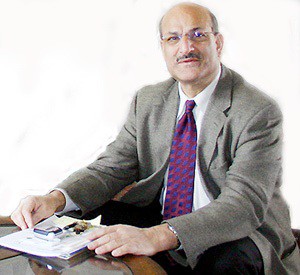 Offered in partnership with the Indo-American Community Federation and the Mechanics’ Institute, IACF founder Jeevan Zutshi will talk about the South Asian community that has developed in Fremont,
Offered in partnership with the Indo-American Community Federation and the Mechanics’ Institute, IACF founder Jeevan Zutshi will talk about the South Asian community that has developed in Fremont,
…

